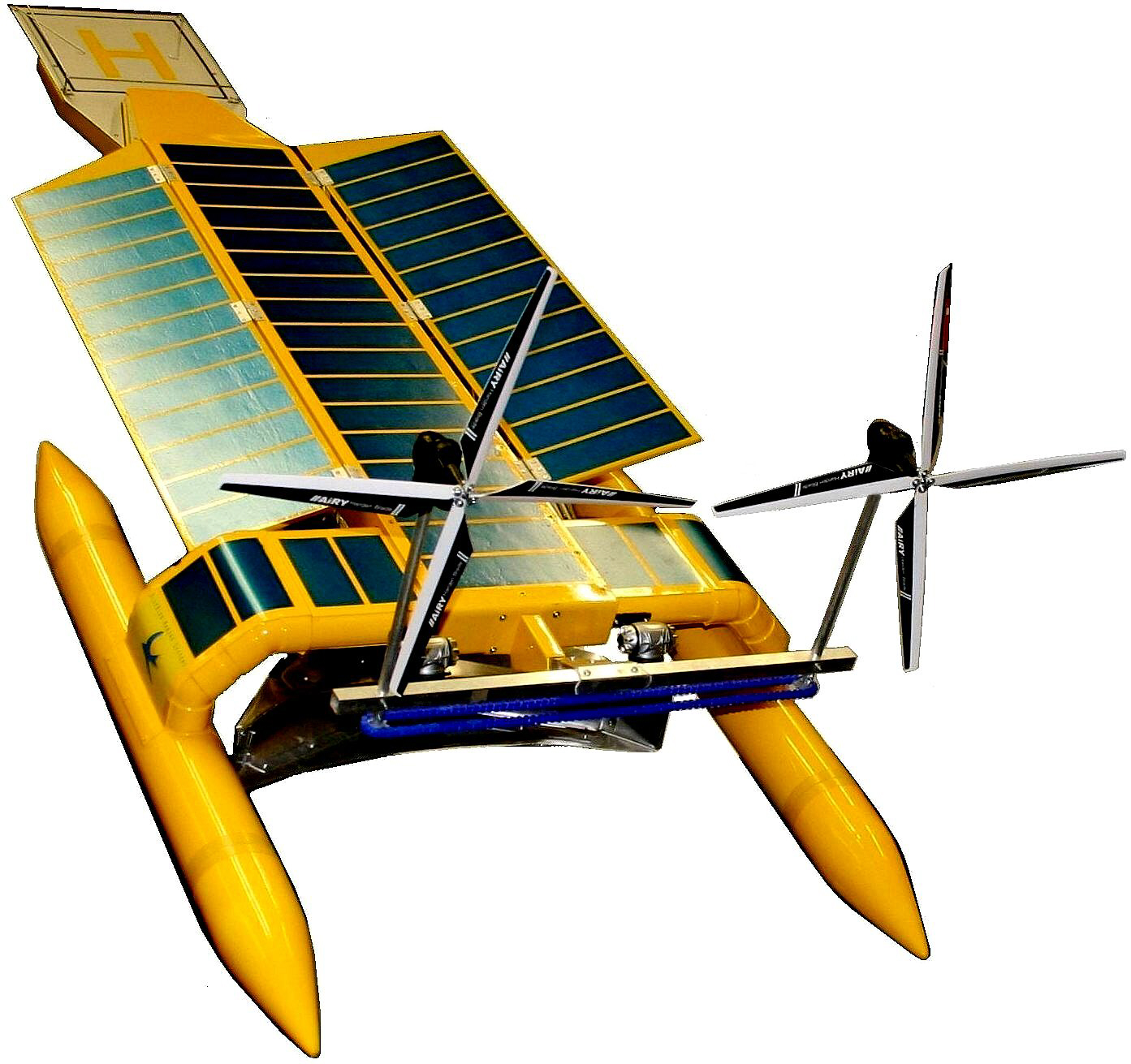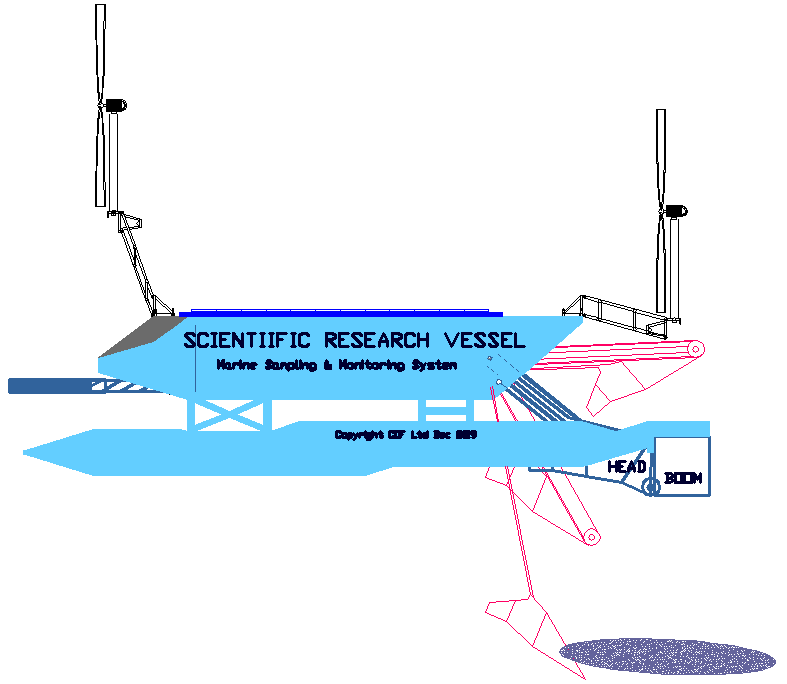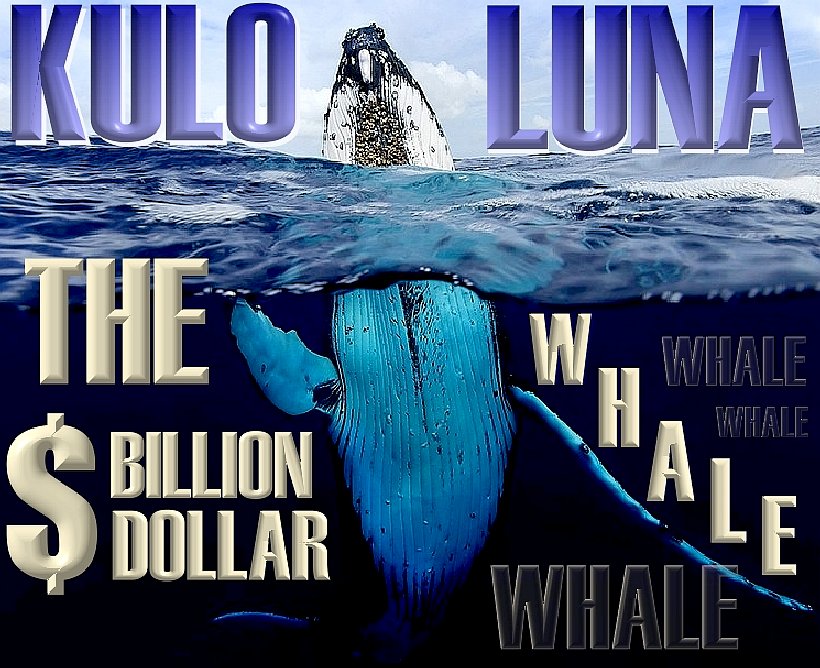|
SEA & RIVER CLEANING MACHINES
Please use our A-Z INDEX to navigate this site, or swim HOME
|
|
SEAVAX - This is a 44 meter ocean going vessel powered by the wind and sun. It is designed to harvest marine plastic from large floating objects like trawl nets, to micro plastics. Up to 2024, the only machine with such capabilities. Wind turbines could be replaced with hydrogen power reserves. Especially useful for dealing with troublesome Sargassum in the Caribbean, in bulk.
Seavax (above) and the smaller river (pilot) cleaning machines (below) would have been capable of filtering river and sea water of plastics, but were only been developed in small scale, and not with all the features to make them really useful as autonomous vessels in rivers and out on the open oceans.
These machines need to be much bigger to tackle that pollution problem as it is currently. They are the only machines at present (to 2024) that offered the prospect of dealing with micro plastics and fibers - and discarded fishing gear.
Unfortunately, funding for such social enterprise did not come from those responsible for using all the plastic and allowing it to be dumped into the oceans. Why?
"Because the ocean is a free dumping ground, underpinning unsustainable policies. The perpetrators simply will not pay to clear up their mess."
The Cleaner Ocean Foundation (and other collaborative partners) applied for EC funding three times from 2017, via the Horizon 2020 scheme. Each time those applications were refused funding - though the money for research is going somewhere, it does not seem to have found its way to ocean or river cleaning operations at any scale to be making a difference - and that is why - up until 2021, we kept searching for other ways to fund SeaVax and RiverVax development. Alas, all doors were slammed firmly shut.
Where organizations such as the United Nations and European Union (Commission) have said that they will not pay for such innovative research and development, the UN indicated that once such machines might be developed, they might consider helping at that stage with implementation. That is putting the Cart Before the Horse. Without funding to develop the machines, there is nothing to talk about. Nothing to implement. They thus lost their champions, and that window of opportunity.
The target from 2017-2021, was to fund the necessary R&D, to overcome the technology hurdle, taking a concept from Technology Readiness 1 (TRL1) to at least TRL6. It remains at TRL1, simply a proof of concept model that proved it was capable of recovering one size of plastic particle from a test basin. No tests were conducted on fishing nets. The proof of concept model could have been taken to that stage with funding. Shredders of various designs were purchased, but there was no funding to proceed to the next development stage. Examiners appeared not to comprehend that. Declaring the concept developed. Yes, that is what they decided. Wrongly of course. This is a well documented historical blunder they will have to live with.
The truth is, the Foundation would not have passed their financial tests. And they knew that, so better to terminate in the womb, than face financial discrimination allegations. Only companies with a trading track record, and sizeable financial reserves are funded, unless they are large academics. It is called being 'Risk Adverse.' Those most in need of funding, are the least likely to receive it. Grant funders would rather not see real progress, than take a chance on an unknown quantity.
Fortunately, there are other projects that are partially alleviating the problem, such as the Baltimore Wheels and Boyan Slat's Interceptor Skimmers. But these machines cannot filter out micro plastic particles and fibers from the water column. Nor can they recover large trawl nets at sea, slice them up and get them out of the ocean.
And that is why the Kulo Luna project is important. Where the Foundation gave it their best shot, for zero conservation returns, ocean awareness campaigns promise to educate the next generations of bio-engineers. Every volunteer, can only afford to throw away so many years of their lives, before getting on with earning a living. Remember that, all you coming fresh to the challenge - mystified as to the stagnation. The powers that be knows volunteers soon run out of puff, and will grind them down. Unless, they pass the baton to the next generation, and the next, and wear down those trying to get elected, or re-elected on promises they never delivered : )
SEAVAX 'PILOT' RIVER CLEANER - This is a 16 meter version of the SeaVax above, with a modified head capable of being lowered to a depth of 8 meters to deal with deeper historic plastics on riverbeds and other coastal areas, capable of sampling the water column at different depths or as a continuous information stream (a picture of the water column) as it is lowered and raised. These machines can also be hydrogen powered, to eliminate the wind turbines.
PREVENTION IS BETTER THAN CURE
The plastic problem would not be so bad, and this is where we need to concentrate our efforts, if everyone disposed of waste carefully and recycled the plastic humans have already created, such as to reduce the need to produce as new material. But, they keep on building more polyolefin plants. A sure sign the fight is still in its infancy.
Or we could simply ban plastics from packaging, in favour of biodegradebles/biocompostables. Except, for the Red Flags to progress, those with same vested interests: The oil companies.
We can all play our part on this side of things, disposing of plastic responsibly, and buying foods and products that are not smothered in plastic packaging - wherever possible. We need to reduce consumer demand, to strangle the oil business.
Supermarkets and product producers are doing their bit where they can, with plastic bag taxes and bans in various countries also having an impact, but all these efforts rely on public awareness, since the retail market responds to purchasing power and trends.
Plastic waste is still being exported to Asia, where it is not treated, but simply dumped in rivers. In our book that is offset fraud. Exports of plastic waste from developed to developing countries should not be allowed. It is a whitewashing con.
We need foods and other products to have their packaging redesigned so that where plastic is used, it is recycled, with messages to that effect on the products.
If the buying public switches brands because of the packaging, companies will respond. It's all about the money!
To make this happen we need everyone to know about the problem, so they can help. If people do not know that littering is killing marine life, they won't realize that their actions and choices are directly responsible for the agonizing deaths of millions of creatures that nobody wants to see harmed.
"It's all about the money."
FOOD SECURITY & PUBLIC HEALTH
We should not forget that we eat the fish that have been eating our plastic waste.
This is important because plastic attracts toxins that cause cancer. Hence, eating contaminated fish is not good for us - or the fish we are poisoning upstream. Humans are top of the food chain.
The plain fact is that we need fish to feed our growing population, where fish stocks are on the decline.
That is not good news, and fish farmed by aqua-culturists is also potentially open to contamination where grown in open water fish tanks in the sea.
Shellfish is right in the firing line from river pollution. Mussels, oysters, shrimps and other seafood is contaminated to the point where the fishing beds have had to be closed.
The adventures of John Storm and the Elizabeth Swann. John Storm is an ocean adventurer and conservationist. The Elizabeth Swann is a fast solar powered boat. During a race around the world, news of the sinking of a pirate whaling ship reaches John Storm and his mate Dan Hawk. They decide to abandon the race and try and save the whale.
Please use our A-Z INDEX to navigate this site
|
|
|
This website is Copyright © 2024 Cleaner Ocean Foundation Ltd and Jameson Hunter Ltd
|


